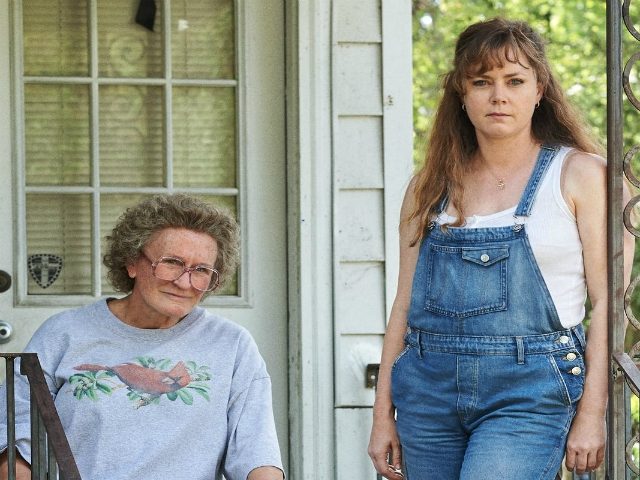This Thanksgiving, the biggest turkey seems to be Netflix’s Hillbilly Elegy, the recipient of nearly universal bad reviews. Critics have gutted the Ron Howard-directed movie, which began streaming today, for its lack of subtlety, formulaic screenplay, transparent awards grubbing, and oversimplification of the original bestselling memoir.
In the subsequent avalanche of think pieces, media elites are also using the movie as an opportunity to take parting shots at author J.D. Vance, a Republican, and his book that was once celebrated on both sides of the aisle. What a difference four years makes: once a superstar, Vance is now the cultural elite’s whipping boy du jour.
Hillbilly Elegy, published in 2016, coincided with the rise of Donald Trump as a presidential candidate. The memoir became a roadmap for chastened left-wing elites trying to understand why the white working class turned out in the tens of millions to vote for President Trump. But the left’s attempts at empathy were ultimately short-lived, and the media’s love affair with J.D. Vance gradually fizzled out.
Watch below:
The movie version, starring Glenn Close and Amy Adams, comes one presidential election later just as the media have anointed Joe Biden as president-elect, while President Trump has vowed to challenge the results in key battleground states. This time, cultural elites aren’t being so kind to J.D. Vance and are using the movie as a chance to diss the book that many on the left once elevated.
At the core of their arguments is that J.D. Vance’s book does the unforgivable — its promotes a Republican and “right-wing” view of the world. Another unpardonable offense: Vance focuses on white people at the expense of minorities.
In a think piece for The Washington Post, writers Lanora Johnson and W. Carson Byrd fault Vance and his book, claiming that they echo “common GOP talking points — prioritizing personal responsibility over community care.” They also blame the author for neglecting race in his portrayal of rural Appalachia. “Vance paints Appalachia as a near-exclusively White space, place and worldview. Erased are Black residents and their histories in the region.”
The Atlantic ran an essay calling Hillbilly Elegy “one of the worst movies of the year.” Writer David Sims also takes a shot at Vance’s book, arguing that “it largely focuses on the virtues of hard work and perseverance, launching vague broadsides against the American welfare state; the author often appears uninterested in interrogating deeper systemic issues.”
New York magazine’s Sarah Jones called Vance’s memoirs “a fundamentally right-wing book.” “Hillbilly Elegy is a terrible — and yes, offensive — film. But the real problem with it is JD Vance,” she wrote. “The book is poverty porn wrapped in a right-wing message about the cultural pathologies of the region. In Vance’s Appalachia, poverty and immorality intertwine. Success happens to hard-working people, and structural explanations for poverty receive glancing attention when he chooses to mention them at all.”
Jones added: “Glenn Close and Amy Adams have pinned their Oscar hopes to material penned by a right–wing commentator who keeps company with some of the most anti-democratic figures in the modern conservative movement.”
The prestigious Boston Review ran an essay accusing Vance’s book and the movie of white privilege. Both revive “venerable tropes of white ‘mountain’ poverty and orneriness blended with heart-tugging dignity, bundling them into a bland story of the triumph of the human spirit without ever challenging how this nostalgic impulse sidelines meaningful reckoning with whiteness and its iconography.”
Follow David Ng on Twitter @HeyItsDavidNg. Have a tip? Contact me at dng@breitbart.com

COMMENTS
Please let us know if you're having issues with commenting.